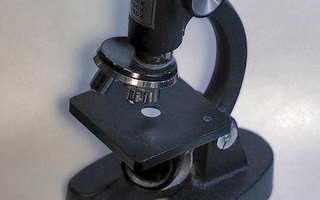On Friday mornings, a group of faculty from across the sciences congregates in the Harvard University Center for the Environment to share pastries, coffee, and the most intriguing findings on microbial topics. These “Friday Chalk-Talk Breakfasts” are just one piece of the multifaceted program that makes up the Microbial Sciences Initiative.
The initiative, an interdepartmental and interschool program founded by Harvard faculty members in 2003, aims to engage more students from the College as well as microbial scientists from the Boston area, according to co-director of MSI and microbiology professor Roberto Kolter.
The science initiative currently involves approximately 100 professors from a variety of departments, including the Organismic and Evolutionary Biology, Molecular and Cellular Biology, and Earth and Planetary Sciences departments, as well as Harvard Medical School and the School of Engineering and Applied Sciences.
“Examples of interdisciplinary research projects developed due to the MSI by students, postdoctoral fellows and faculty include the characterization of the phylogenetic and metabolic diversity of bacteria associated with cystic fibrosis, addressing questions regarding the origin and evolution of polycyclic lipids,” Colleen Cavanaugh, the other co-director of MSI, wrote in an email.
These research findings are shared at weekly gatherings hosted by MSI, including the Friday Chalk-Talk Breakfasts, and at seminars given on the second Thursday of every month.
In addition to these year-round activities, MSI also hosts a few yearly or seasonal programs.
According to Kolter, MSI holds an annual symposium, in which members of the microbial research community gather to discuss recent findings with the hope of attracting undergraduates both from Harvard and other universities in the area.
“Currently, the Harvard Microbial Research Initiative are only Harvard-affiliated faculty, and undergraduates who apply for summer initiatives are largely Harvard,” said Kolter, “But, any of the events we hold are free and open to the public; faculty and students from MIT, Northeastern all come.”
The MSI annual symposium, which will be held at Radcliffe Gymnasium this Saturday, is open and free to the public.
In another attempt to attract undergraduate students to the study of microbes, MSI’s faculty associates helped to create the secondary field in microbial sciences.
“That secondary field wasn’t as successful,” Kolter said. “Students are probably getting the information from biochemical sciences or other concentrations.”
For this reason, MSI relies heavily on its summer research fellowship to attract undergraduates. The fellowship, available to undergraduates, funds students to work in the labs of MSI affiliates.
“We would love to reach out to more undergraduates,” Kolter said. “That’s why we have the summer training. It’s our most successful way of attracting undergraduates.”
Read more in College News
Harvard Admissions Office Considers How To Weigh MOOCsRecommended Articles
-
TO HOLD SUMMER SCHOOL JULY 7 TO AUGUST 16This summer there will be one session of the Summer School, lasting from Monday, July 7, to Saturday, August 16.
-
No HeadlineAt a meeting of the President and Fellows of Harvard College, in Boston, February 16, 1885, A petition was received
-
 Undergraduate Research in the Sciences at Harvard
Undergraduate Research in the Sciences at Harvard -
Powering the Future with MicrobesProviding abundant, cheap, renewable, and easily transportable energy will be one of the greatest challenges of the 21st century.
-
 Business School Raises Awareness of Gender Concerns
Business School Raises Awareness of Gender Concerns













